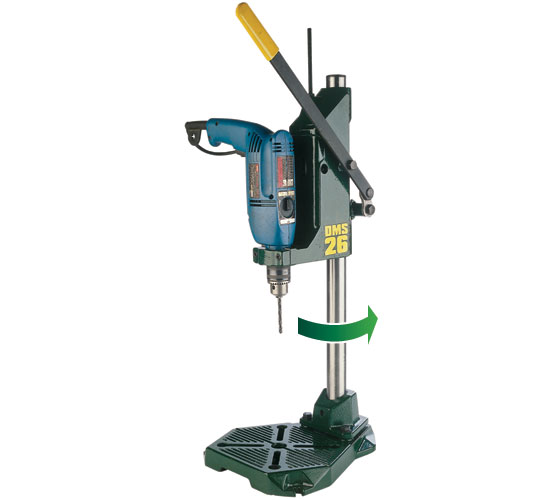To add to the above: "Mr. Morse" (I presume), along with several others with slightly different ideas, developed a system of standard size tapers. The most common that you'll find on home workshop machines are "MT1", "MT2" & "MT3".
Imagine the "inside tube" (female hole) on the head stock of a lathe, or in this case, a drill press. As you may guess, MT 1 is the smaller, MT 3 is the larger, but in all cases, the "inside tube" is tapered by a set amount, with the biggest dia hole at the "front" (tool entry end) and the smallest at the back.
If you now have a piece of round steel "bar" which is also tapered by the same (specified) amount, but this time with the small dia at the front end, you can see that ALL such "bars" which are made to that same taper spec can be fitted into all "tubes" also ground to that same taper spec (MT1, 2 or 3). AND they'll stay there "permanently" simply because of the friction between the 2 tapered faces (one on the "bar" one on the "tube"). To remove you simply break the friction for which there is an easy process, varying dependant on the tool. If/when we get to that point, ask again ad someone will explain, but it's dead easy and this post is too/long enough already!
Thus if you take, say, a drilling chuck, and mount it onto one of those "bars" it will fit into any "tube" fitted on, say, a lathe or, in this case, a drill press. Take my drill press for example - it has a MT3 "tube" (that's called the "quill" BTW) and that's what's driven round and round by the motor. Again in my case, I have quite a big 3 jaw drill chuck (15mm dia capacity if I remember right), thus I can fit into that chuck any type of drill bit with a round end up to a maximum of 15 mm dia. BUT that same drill chuck, because it's pretty big, does not reliably close down accurately on any drill bit smaller than about 3mm dia. So I have another MT3 bar on which is mounted a much smaller drill chuck which can happily cover any drill diameter between zero and about 4 mm. Thus with one machine and 2 drill chucks I can happily bore any hole from, say, 0.1 mm dia up to about 15mm dia. As the previous poster has already said, for most wood working jobs that's enough, and for the rare occasions when you need a bigger hole in wood there are tools such as hole saws which have a centre pilot drill which will fit a 15mm capacity chuck.
BUT, as the previous poster has also said above, IF you get to get into wanting bigger diameter holes in hard stuff like steel you COULD go out and buy an even bigger chuck than my 15mm jobby - BUT that would be VERY expensive if it's to have any accuracy at all (big accurate chucks are difficult, and so expensive to make).
So when I wanted some 23 mm dia holes in steel I went to the local good tool store (not a B&Q type place) and bought a single 23 mm drill bit. This drill bit, instead of having a plain non-tapered shank on it had a MT 3 taper on the end, so it fitted straight into my drill press (after first removing the chuck of course).
Note that my drill press is a fairly big one, it has a max drilling capacity of 20 mm on the data plate (that's theoretically), but it's got a 600 Watt motor, so when selecting the lowest possible "gear" (i.e. speed - mine's a cheapo, so uses belts to change speeds, not a gearbox) it quite happily drilled me those 23 mm holes in MS. In fact I've also drilled about 26 mm if I remember, but that IS approaching the real limit of my machine though.
NOTE also PLEASE, if drilling holes that big the work piece MUST be bolted or clamped down! SAFETY - with those sorts of sizes, if the drill catches slightly on the job (which it will) then there is so much torque involved that the machine will easily rip the job out of you hand - and that HURTS!
Finally note that I am now the "proud owner" of a 23 mm drill bit with an MT3 end on it. So because my lathe also has an MT3 taper tail stock, I can happily use that same drill directly in the lathe. And over time I've also acquired about half a dozen other bigger than 15 mm dia drill bits with MT3 ends, all of which can be used directly on both machines. So good idea Mr. Morse! (I presume there was once such a gent, dunno).
So in short having a drill press with an MT taper quill (female hole) is very handy IF you think you'll ever be doing "daft stunts" like drilling girt big 'oles in 'ard stuff"! VERY useful at times I find and so I'm glad I bought a drill press with a MT quill.
Sorry it's long but hope it's now clear and HTH your choice.







